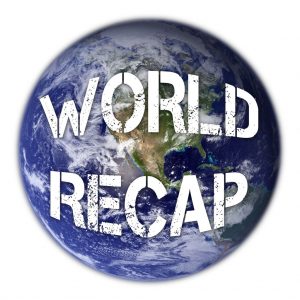Weekly Geopolitical events
By Keating Smith, Staff Writer
Africa: (Algeria) Eleven al-Qaeda affiliated group members are dead along with 30 hostages after the Islamic extremists stormed a gas refinery in southern Algeria last week. The group, alleged to be from Libya, took control of the facility in retaliation to the military intervention France has staged in neighboring Mali. The refinery, which was stormed by the Algerian military resulted in several European and Japanese foreign workers being killed during the firefight with several other workers unaccounted for.
North America: (Canada) Quebec’s provincial government is assertively pushing ahead with a euthanasia bill coined as the “dying with dignity” bill which the federal government has described as unconstitutional, violating criminal law in the country. A 400-page report written by a legal team for the provincial government argues against any form of criminal code violations in suicide assistance which is primarily intended to assist terminally ill patients end their lives due to extraordinary pain and suffering. This is not the first time the federal government has dealt with suicide assistance in Canada and a similar case is currently being appealed in BC through the province’s Supreme Court.
Latin & South America: (Cuba) Cuba’s Ministry of Health has confirmed an outbreak of cholera in Havana, the first outbreak in the country since the 1950s. The outbreak is thought to have originated in the poorer area of Central Havana, where doctors have been going door-to-door searching for early symptoms of the acute intestinal disease. Cholera is transmitted through water and food that has been in contact with the fecal matter of an infected person. Cholera is known to cause severe diarrhea or fatal dehydration of the body.
Asia- Central & South: (Pakistan) The Pakistani Supreme Court has ordered the arrest of Prime Minister Raja Pervez Ashraf who is accused of being connected to a corrupt scandal while he was the federal minister of water and power. The scandal, which involved Ashraf and a dozen other bureaucrats in his ministry, involves the contract to purchase several ‘rented’ power plants in the country by the government. Ashraf “Violated the principle of transparency, therefore, [his] involvement in getting financial benefits out of the same by indulging in corruption and corrupt practices cannot be overruled,” the Supreme Court said in a press release.
Asia- Pacific: (Taiwan) Tens of thousands of protestors descended into central Taipei last week to stage a demonstration against the incumbent government’s slow economic growth. Taiwan’s president Ma Ying-jeou has vetoed any public demands for reform as political relations with Beijing are of top political priority to him and his government.
Europe: (Germany) An estimated 700 tonnes of Germany’s gold reserves will be sent to Frankfurt by 2020 from both Paris and the New York Federal Reserve. Next to the US, Germany holds the second largest gold reserves in the world and historically, Germany’s central bank, Bundesbank, has kept the majority of their reserves abroad in fear of a Soviet invasion or for trading purposes in times of economic turmoil. Internal skepticism comes from Germany’s Court of Auditors as to how well managed and accounted the stockpiles of the countries gold are being managed outside of the country.
Middle East: (Israel/Jordan) The World Bank released a report earlier this month elaborating on the socioeconomic and environmental benefits of building a projected $15 billion pipeline that would connect the Red and Dead Seas. The Dead Sea is drying up due to the Jordan River and its tributaries being diverted into surrounding countries for agricultural and electric production at approximately one meter per year. Environmentalists criticize the project, citing the pipeline installation will disrupt the surrounding ecosystems and in the case of a pipeline rupture exceptionally dense salt water would contaminate the land.
